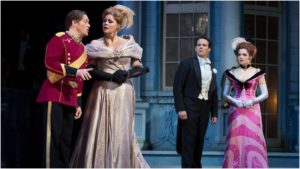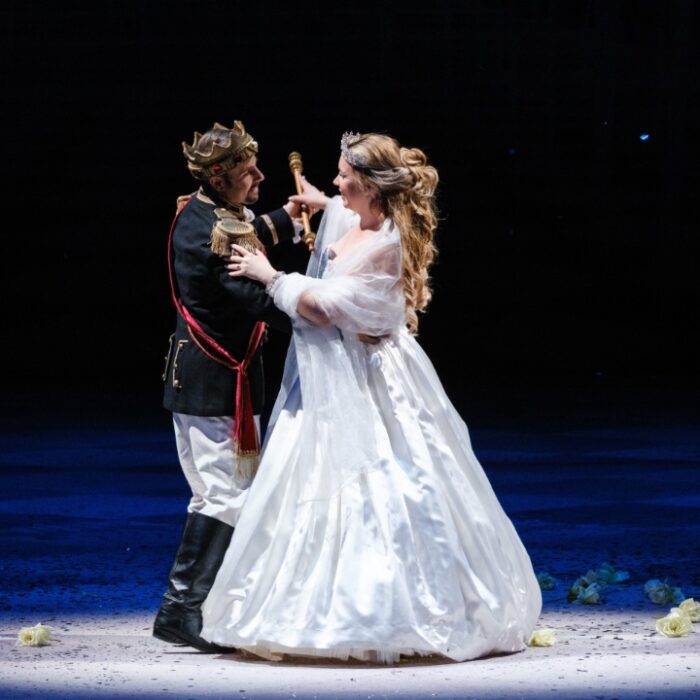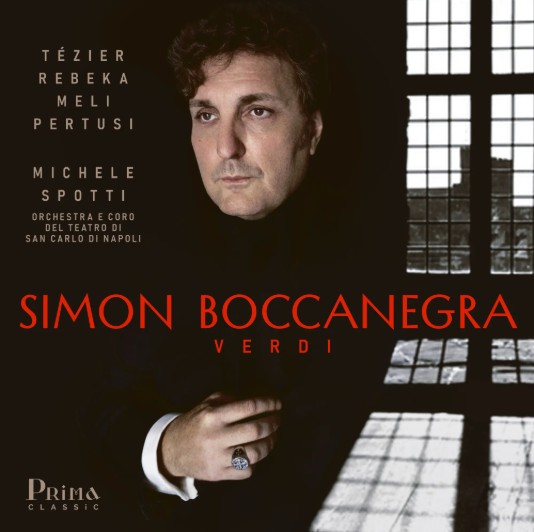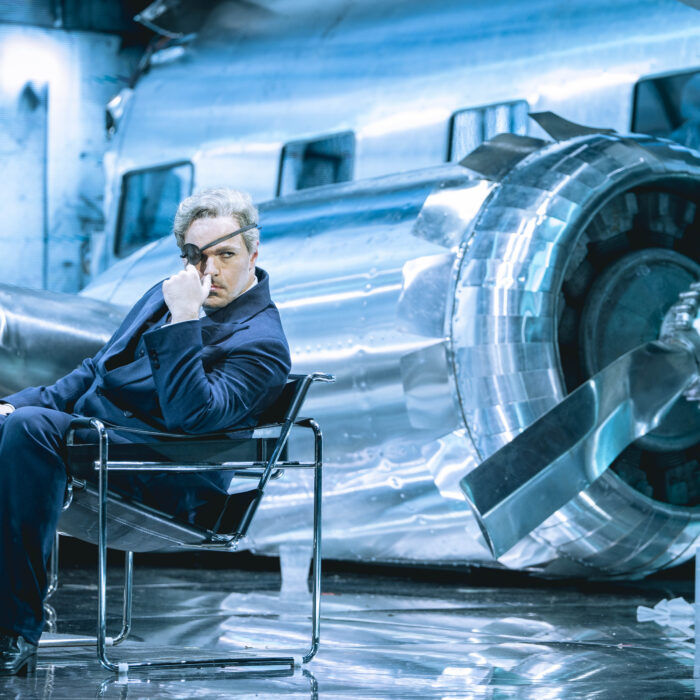
Metropolitan Opera 2017-18 Review – The Merry Widow: Susan Graham & Andriana Chuchman Shine In Léhar Operetta
By Anibal SalazarThis review is for the performance on Dec. 14, 2017.
It’s an interesting time at the Metropolitan Opera right now. Undeniably taking into account the jolly spirit of the holidays the company is only showcasing comedies between now and Dec. 31, when it presents a new production of one of the most violent of all operas – “Tosca.”
But for now its all about warmth and comedy with the offerings including “Hansel and Gretel,” “Le Nozze di Figaro,” and “The Merry Widow.” Of course, one of these is not like the others as the current production of “Hansel,” colorful as it may be, has some seriously dark undertones. Ditto for “Le Nozze di Figaro,” an opera about sexual harassment and abuse, in a time where that topic is prevalent.
That leaves “The Merry Widow” as the only one of the three that is far more relaxed in its themes, even if it does include a bunch of greedy men trying to win the hand of heiress to plunder her fortune.
This Viennese operetta is one of the famous of the 19th century and the most popular that Franz Léhar ever created. Written by Victor Léon and Leo Stein and based on the play “L’Attoche d’Ambassade” by Henri Meilhac, this operetta has been translated into English, French, Italian Spanish, and many other languages. It has been adapted for several movies, include two silent films in 1918 and 1925. There is a version in black and white film from 1934 starring Maurice Chehalier and Janette McDonald and directed by Ernst Lubitsch. There is another version that dates back to 1952 and includes Lana Turner and Fernando Lamas in the cast. More famously, the opera’s famed waltz was a major motif in Hitchcock’s “Shadow of a Doubt.”
Party Time
The operetta itself is structured across three distinct parties, and as one might expect the sets for this production are lavish, rife with colors and a ton of dancing. The Met’s ballet troupe introduced each setting and did an excellent job doing just that. Of particular note is the transition between the last two acts, the ballerinas’ “can can” serving as a transition between the two settings. Also worthy of note is that soprano Andriana Chuchman, who played Valencienne, joining in the festivities to great success.
Leading Ladies
Speaking of star singers, operettas DEMAND great singing-actors. Without them, the light fare would feel rather superficial and ultimately empty. A good singer can only carry an opera so far, something that is not necessarily the case in most operas. Fortunately, this production had that and more in its two leading ladies. Susan Graham is the perfect portrait of Hanna Glawari – she is a sassy coquette with a glamorous aristocratic quality. In other words, her Hanna was ever-evolving, constantly surprising with her manner. You might find her flirtatious in one moment, stern and unapproachable in another, and quite the trickster in her final moments. Vocally, she was in fine form with pristine intonation and a suave legato, particular in her chocolatey middle register. Her duet with Danilo, in which they declare their love, was rich for her shift from rough and tumble to refined and tender.
Andriana Chuchman, as noted, showcased tremendous versatility throughout the evening. She was quite the ingenue in her moments with Rosillon (played by David Portillo), but had an irresistible beauty of voice with a wide-ranging palette. Her high notes were incredible to be sure, always crystal clear and assured.
Leading Men
Count Danilo is regularly performed by a baritone, but in this case the Tenor Paul Groves took place of this character. David Portillo interpreted Camillo de Rosillon, his delicate voice a solid pairing with Chuchman’s pristine vocal abilities. Both tenors stood out in their ensemble moments, particularly in “Who Can Tell What the Hell Women Are“ in the second act.
Sir Thomas Allen continued to showcase his acting abilities at age of 73, creating an enthralling interpretation of a delusional older gentleman.
Maestro Ward Stare had a good night in the pit, his musical direction keeping the proceeding flowing. He was particularly strong at creating a flexible sound world for the singers, always ready to get the Metropolitan Opera Orchestra to its most jubilant in massive choral sections, but also very gentle and hushed in moments that allowed audiences to bask in the solo performers. This was most noticeable in the famed love duet between Hanna and Danilo, which features the timeless waltz. The tempi stretched and swooned with the artists, giving this love affair a sense of freedom.
Overall, this was a night to relish in beautiful melodies and singing all around. If you want a night out at the opera vastly different from the other works at the Met this month, then this is the one for you. Graham and Chuchman are simply irresistible and the music will ring in your ears long after you’ve left.


